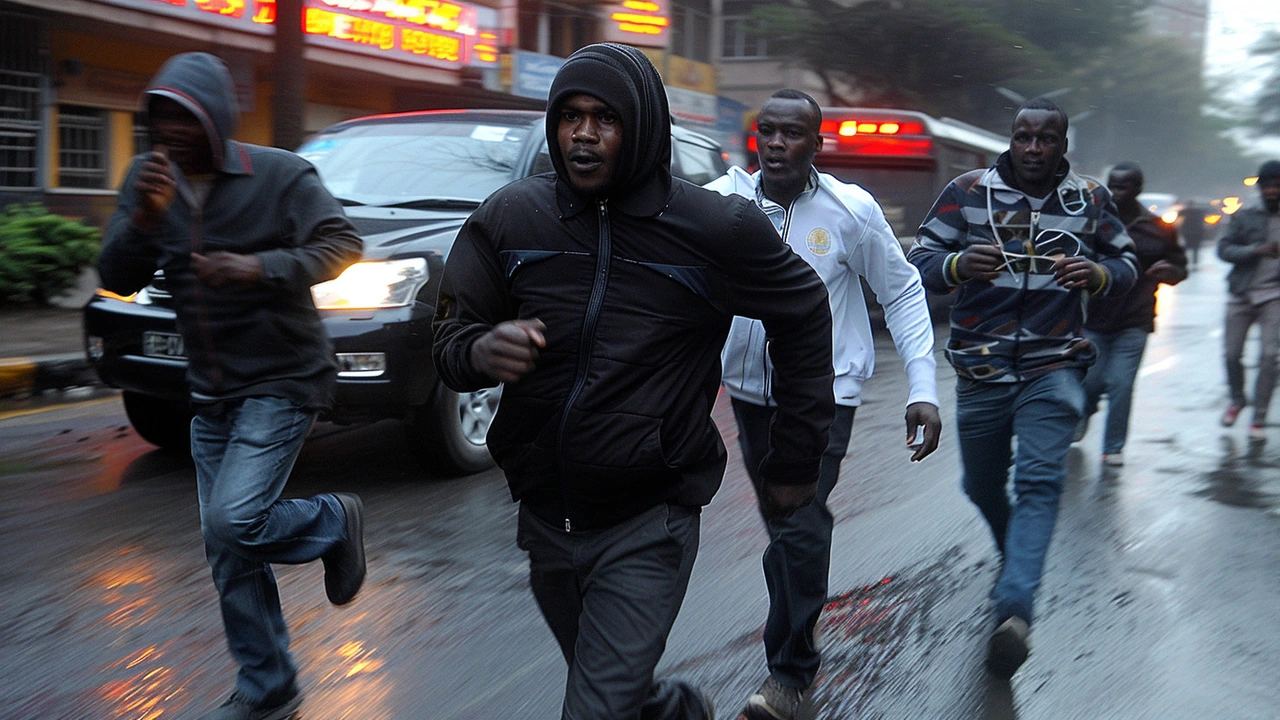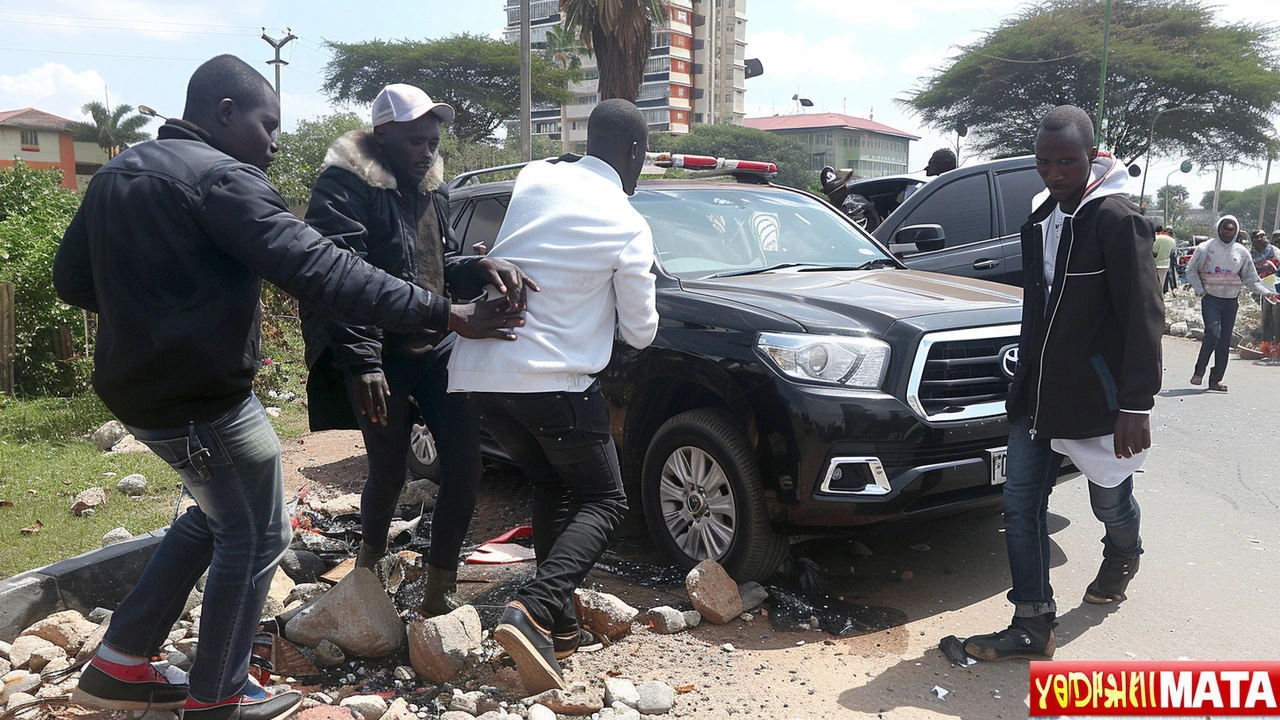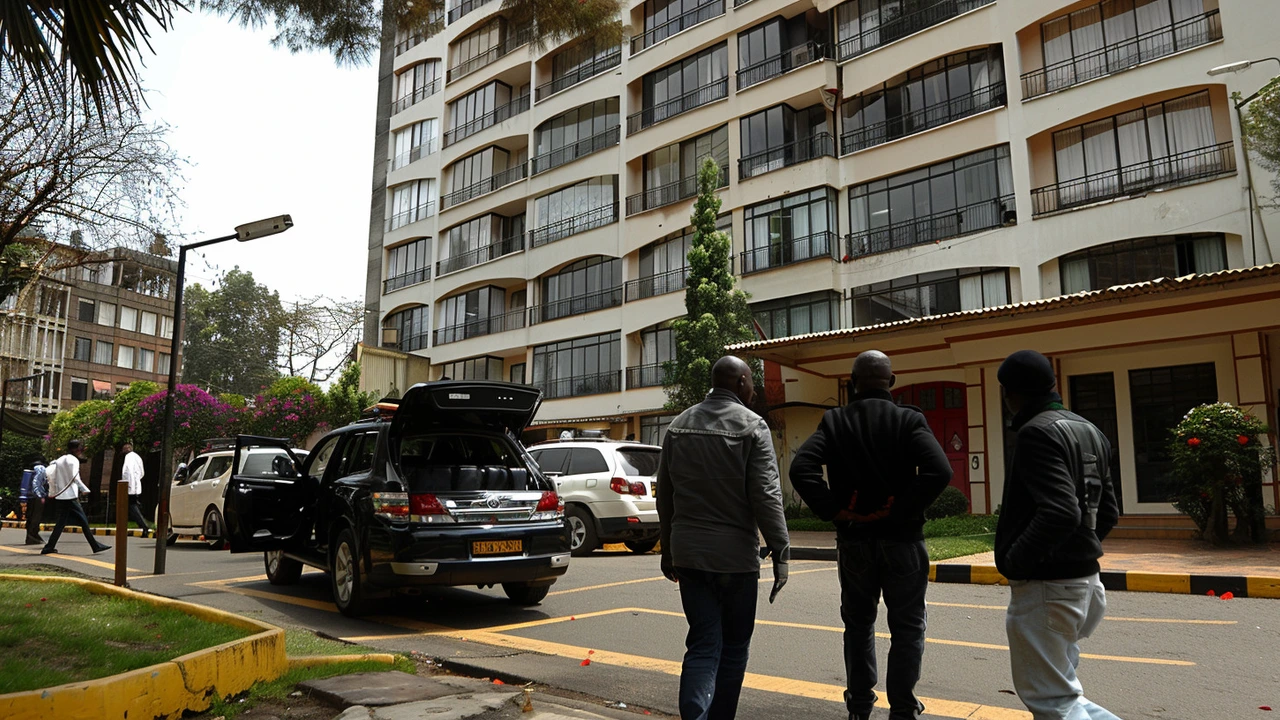Prominent Ruto Critic Alfred Keter Abducted in Nairobi: Shocking Video Emerges

In Politics
Notorious Critic of the Government Alfred Keter Abducted in Nairobi
The political climate in Kenya has taken a dark turn with the abduction of Alfred Keter, a staunch critic of President William Ruto and former Member of Parliament for Nandi Hills. On Sunday afternoon, the high-profile critic was dramatically whisked away by unknown individuals in the upscale Lavington area of Nairobi. This incident, caught on video, has sent shockwaves throughout the nation and beyond, further exacerbating fears about the safety of government critics.
Witnesses reported that the abduction occurred in broad daylight in the presence of Keter’s wife and children. The video that has since gone viral shows Keter being forcefully removed from a black vehicle while desperately screaming for help. Voices of onlookers can be heard joining in the turmoil, highlighting the sheer audacity of the perpetrators. According to several sources, the abductors are believed to be police officers, though this remains unconfirmed. The visual evidence of such a brazen act has sparked outrage and further fueled the ongoing debate about governmental tactics to silence opponents.
Immediate Reaction and Public Outrage
As the video circulated widely on social media, the public’s response was swift and scathing. Many Kenyans took to various platforms to voice their anger and concern. Among them were influential politicians and public figures who condemned the abduction and demanded Keter's immediate release. They accused the current administration of using intimidation and fear to stifle dissent. This episode is not isolated; it follows a troubling trend of similar events. Just within the last week, various social media influencers and vocal critics of the government have reported being abducted and, in some cases, later released. This repeated pattern has intensified the sense of insecurity among those who dare to question the government’s policies and actions.
Political Context and Background
Alfred Keter’s abduction has occurred during a particularly tense moment in Kenya’s political landscape. Keter has been an unwavering critic of President William Ruto and his administration, challenging their policies and calling for greater transparency and accountability. His fearless approach has garnered both admiration and enemies. The latest development appears to be another chapter in the ongoing saga between the administration and its critics. Political analysts argue that the abduction is a clear indicator of the lengths to which the current regime may go to clamp down on opposition. This view is underscored by the recent wave of harassment and intimidation facing government detractors.

Increased Pressure on Authorities
The incident has increased pressure on Kenyan authorities to address accusations of such extreme actions. Human rights organizations both locally and internationally have demanded an inquiry into Keter's abduction and the broader trend of dissident crackdowns. They stress the importance of safeguarding democratic principles, including the right to free speech and protection from unlawful detainment or harm. The government’s silence or inability to provide concrete answers could have severe implications for Kenya’s reputation on a global scale. Furthermore, activists argue that failure to act decisively may embolden further violations of citizens’ rights.
Historical Patterns of Intimidation
This is not the first time critics of the government have faced such threats. Historical precedents reveal a troubling pattern of intimidation and suppression. Previous administrations have also resorted to heavy-handed tactics to subdue opposition voices. However, what distinguishes the current wave of abductions is the apparent impunity with which they are executed. The perpetrators' audacity, conducting these acts in broad daylight and public spaces, suggests a worrying normalization of such violations. Additionally, the modern digital age’s capacity for rapid information dissemination has ensured these events receive immediate and widespread attention, increasing public perception of a descent into lawlessness.
Impact on Public Trust
The public’s trust in law enforcement and government institutions is likely to be profoundly affected by such incidents. For citizens, the image of police officers, or those purportedly acting under official orders, carrying out such brazen acts of abduction deeply undermines their sense of security. Trust, once eroded, is difficult to rebuild, and the government faces a significant challenge in restoring faith among its people. The administration’s response to Keter’s abduction will be closely watched. It has the potential to either mitigate damage by showing a commitment to justice or exacerbate public fear and outrage if seen as dismissive or complicit.

Global Repercussions
The abduction has not only domestic but also international ramifications. Kenya is often seen as a relatively stable democracy in a volatile region, and such incidents can tarnish its global image. International allies and human rights watchdogs are likely to scrutinize the administration’s actions, calling for adherence to democratic norms and human rights standards. Failure to address these concerns might lead to diplomatic friction and possible repercussions that could affect foreign aid, investment, and cooperation.
Looking Ahead
The immediate priority for many is the safe return of Alfred Keter and others who have faced similar fates. Human rights groups, political allies, and concerned citizens are calling for united action against such tactics and for genuine governmental accountability. Movements for greater transparency, judicial proceedings, and protection for critics are expected to gain momentum as a result of this chilling episode. The coming days will be crucial in determining how the administration addresses the uproar and whether meaningful changes will be implemented to protect the democratic fabric of the nation.
As Kenya continues to grapple with these challenging times, it is clear that the fight for democratic principles and human rights remains as critical as ever. The abduction of Alfred Keter serves as a stark reminder of the ongoing struggles within the political landscape, urging vigilance and resilience from those who stand for justice and freedom.
Write a comment